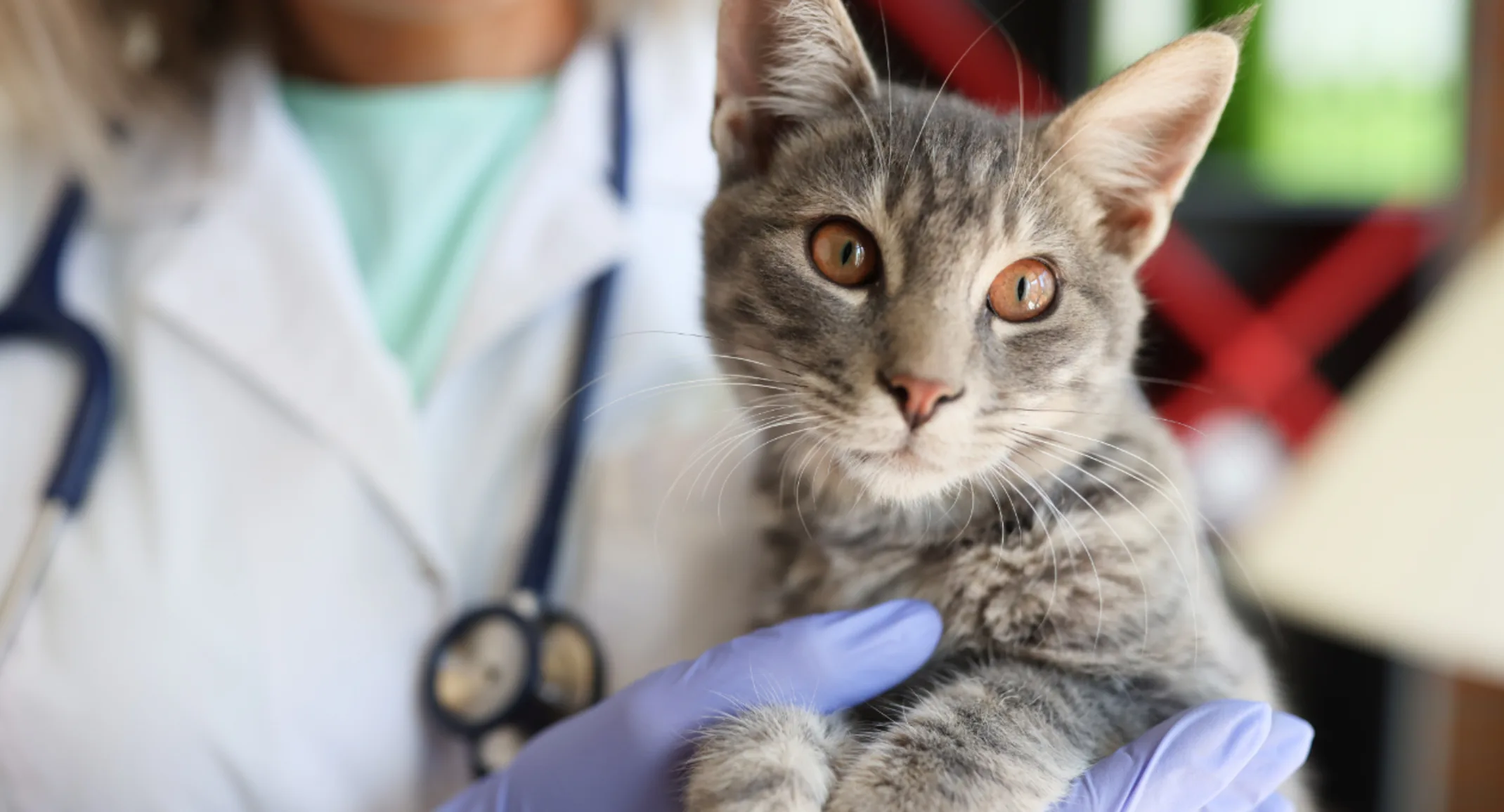What to Expect at Your Pet’s Cardiology Appointment
July 17, 2025 · Veterinary Services

If your dog or cat has been referred for a veterinary cardiology consultation, you may be wondering what the visit will involve and how best to prepare. At our hospital, we understand that heart health concerns can be stressful, and we’re here to help make the process as calm and straightforward as possible—for both you and your furry companion.
Whether your pet is showing signs of a heart condition or coming in for a routine cardiac evaluation, our dedicated cardiology team is committed to providing expert care in a compassionate, low-stress environment. In this blog, we’ll walk you through what to expect during a pet cardiology appointment, including how to prepare, who you’ll meet, and what tests may be performed to assess your pet’s heart health.
1. Arrive a Little Early:
We encourage you to arrive 15 minutes early. This allows us to keep our appointments on schedule and also gives your pet time to get acquainted with our team prior to starting their diagnostics. We aim to take our time with all of our patients to ensure that they have a quiet, positive, and relaxing visit with our cardiology team.
Some of our strategies for becoming fast friends with our patients include offering cookies, creamy cat treats, and unlimited love and attention.
2. Meet Our Team:
To start your appointment, you will meet with one of our cardiology technicians or assistants (Holly, Ashley, or Johnny), who will take a medical history while getting to know both you and your pet a little better.
3. Bring Your Questions:
Our goal is to ensure you have a complete understanding of the diagnostic tests we perform, and the results that are presented to you. We encourage you to ask any questions you may have to ensure you are feeling confident in your understanding of any underlying cardiac disease your pet may have.
4. Pre-Visit Medications:
We know that it can be nerve racking to see the doctor (even for humans)! Although cardiac diagnostic tests are non-invasive, they can be challenging for pets since an echocardiogram involves them being positioned on their side for about 20 minutes. Although we are very careful with how we hold patients during this procedure, it’s hard for them to understand why we’re asking them to do something so unusual!
For this reason, most patients will benefit from pre-visit medication to help limit their anxiety during their visit, particularly if they have underlying heart disease. The medications we suggest provide a mild calming effect, and do not affect our testing results. Please contact us if you have any concerns about your pet receiving these therapies prior to their evaluation.
5. Injectable Sedation:
Some pets are more anxious than others, so if your pet has a history of being especially nervous at the vet, we encourage you to speak with your regular veterinarian about the potential for injectable sedation. If injectable sedation is required, our team will always discuss this with you prior to proceeding and go over any additional requirements (such as fasting). We want all visits to be as stress-free for our patients as possible.
6. Your Consultation with Dr. Orr:
New cardiology appointments are typically booked for one hour. In that time, Dr. Orr will examine your pet, perform diagnostics, talk through his findings with you, and recommend a personalized care plan for your pet moving forward.
7. Diagnostics:
We provide an estimate for a consultation and echocardiogram with Dr. Orr when we initially schedule your pets. If further diagnostics are recommended that day, an updated verbal estimate will be offered before moving forward. Our consultation fee includes a physical exam, auscultation, blood pressure, and ECG reading. The auscultation allows us to listen for any arrhythmias or heart murmurs. ECGs take a recording of the heart’s electrical activity, giving further insight into any abnormalities that may have been heard during the physical exam. Blood-pressure readings ensure that your pet does not have hypo- or hypertension that requires medical intervention.
8. Next Steps:
Our team will ensure that both you and your referring veterinarian have a copy of the final report once Dr. Orr has completed the record. Should your pet require medication refills, our team is available to have those in your hands within 24 hours of your request Monday-Thursday during business hours. If follow-up visits are recommended for your pet, we will contact you to schedule them as they come closer to being due.
We’re here to support you and your pet every step of the way! If you have any questions before, during, or after your visit, we encourage you to reach out to our team.
